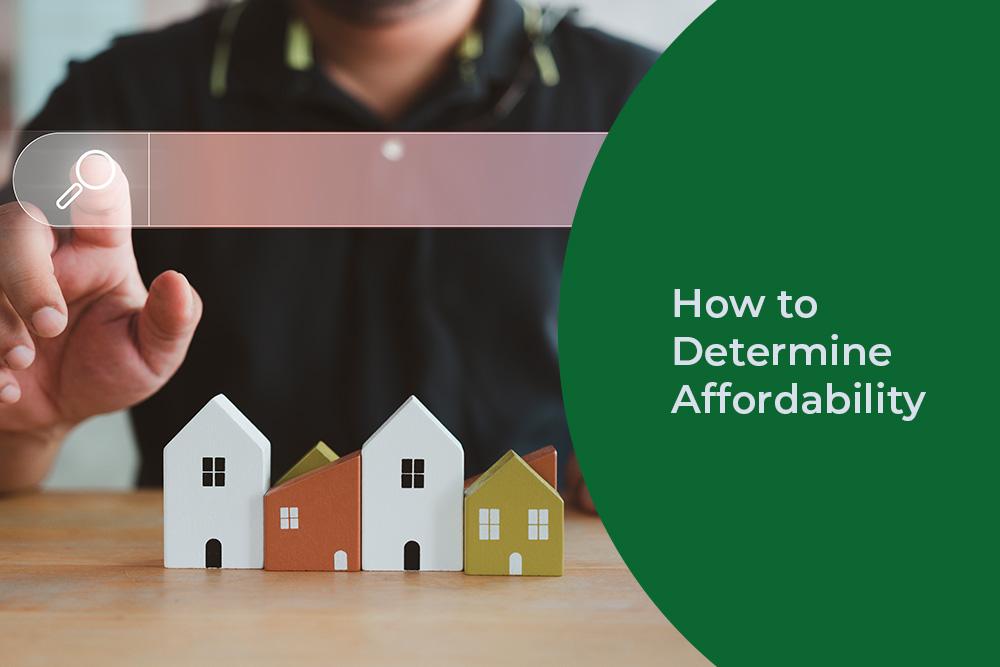Calculating how much mortgage you can afford may seem daunting, but it is a critical step to take when buying a new home. Mortgages in Las Vegas vary in duration and interest rate, so you’ll want to make sure that you get a mortgage with terms that work for you. Figuring out how much money you can afford to spend every month on a mortgage requires some long-term planning, but it’s something you’ll want to figure out before you buy a home.
If you are wondering how much you can afford to spend on a new home, you might not even know where to begin! Fortunately, Fairway Mortgage in Las Vegas is here to help. Our knowledgeable staff will walk you through the necessary steps to determine a suitable budget for your monthly mortgage payments in Las Vegas.
Use a Calculator

One of the first things to do when figuring out how much you can afford monthly for your home loans in Las Vegas is to crunch a few numbers. To start, add up the total amount of how much money you and your co-borrower, if applicable, earn every month. Add up all your monthly income in that total, including:
- Investment profits
- Rental income
- Alimony
Other sources
After that, you’ll want to figure out your estimated total housing expenses and the down payment that you’re planning to make. That estimate should include homeowners insurance expenses, your annual property taxes, mortgage interest rate payments, and the loan terms for the loan that you plan to take out. You may also want to factor in the loan duration, which is usually 15 years or 30 years. Note that most new homeowners choose to start with a 30-year loan, but you should choose the loan duration that you are most comfortable with. Finally, you’ll want to add up all your expenses, which is the amount of money that you spend every month. When calculating this number, try to make as accurate of an estimation as possible since that number is a good indicator of how much money you can comfortably and realistically spend on home payments.
What is the 28/36% rule?
When you start shopping for a home, you’ll quickly learn all the real estate lingo. One good term to know is the “28/36%” rule. That rule essentially says that homeowners should plan to spend no more than 28% of their gross monthly income on their housing expenses, and they shouldn’t spend any more than 36% on their total debt.
While it might seem like an arbitrary number, the 28/36% rule is a gold standard in the industry. It helps homeowners determine how much money they can spend on a home every month and allows a mortgage company in Las Vegas to determine risk. As an example, say you earn $4,000 per month. Your monthly mortgage payment should amount to no more than $1,120, which is equal to 28% of your $4,000 per month income. The other debts you are also trying to pay off each month should amount to, at most,$1,440, 36% of $4,000.
If you do the math correctly, you’ll have some money left over every month, which means it’s up to you how to spend that extra money. You may find that you need to put that money towards short-term expenses like rent, clothing, or transportation, but you may also find that you want to put the extra money you have towards long-term goals like retirement or chipping away at your home loans in Las Vegas.
How to Determine Affordability

There are many factors that go into determining how much you can afford to spend on a home. Fortunately, numerous online calculators make it much easier to figure out how much you can spare to spend every month on homeownership expenses.
For starters, you’ll want to know your annual income, which includes the amount of money you earn every year before taxes and other deductions. If you don’t know your annual income, look at your W2 form. If you have another person who will be contributing to your mortgage, it’s a good idea to add their annual income to your mortgage application as well.
You’ll also want to know your total monthly income and how much money you lose each month, which is also called your monthly debt. One of the key numbers for determining how much you can afford to spend on a home requires calculating your annual income, which is the total amount of money you earn every year before the money you spend on taxes and other expenses. Your annual income might change from one year to the next, so if you’ve had a volatile annual income in the past few years, you may want to present a prospective mortgage lender with your annual average income over the last few years unless they ask for more specific details.
In addition to the new costs of homeownership, you’ll want to consider the pre-existing monthly payments that you had before taking out mortgages in Las Vegas to help cover the cost of buying a home. For instance, you may have already had typical expenses like state and federal taxes, homeowner’s insurance, auto insurance, and more.
Along with all the typical and predictable costs you owe, there will inevitably be some variables. Those variables may include transportation, entertainment, car repairs, and more. As you prepare to buy a new home, considering those unexpected home repair and maintenance can be quite helpful. Contact an experienced loan officer in Las Vegas today to learn more about how much money you’ll need to set aside monthly for home repairs and renovations.
Shop for Lenders

Finding the right mortgage company in Las Vegas that meets your needs is just as important as finding a mortgage with terms and rates that work for you. Lenders have different policies, rates, and requirements, so you’ll want to shop around for lenders before settling on one. Before meeting with a lender and taking out a mortgage, look at your credit score. Lenders will give better rates to people with good credit scores. Borrowers who have higher credit scores, low amounts of debt, and who make a larger down payment on their home are more likely to get a good deal on a rate.
Debt-to-Income Ratio
Another factor lenders consider for home loans in Las Vegas is your debt-to-income ratio. The debt-to-income ratio, or DTI, tells the lender how risky or safe it is to lend you money. You are more likely to get a good rate on a loan, or even get a loan at all, if you have a lower DTI. Most lenders have a maximum DTI that they will consider when lending money. Most look for a DTI under 43%, but some might allow a DTI up to 50%. Either way, you will want to have as low of a DTI as possible when you apply for a loan. You can take some steps to lower your DTI, such as paying off recurring debts and credit cards. Contact us today to learn more about finding an affordable mortgage!









